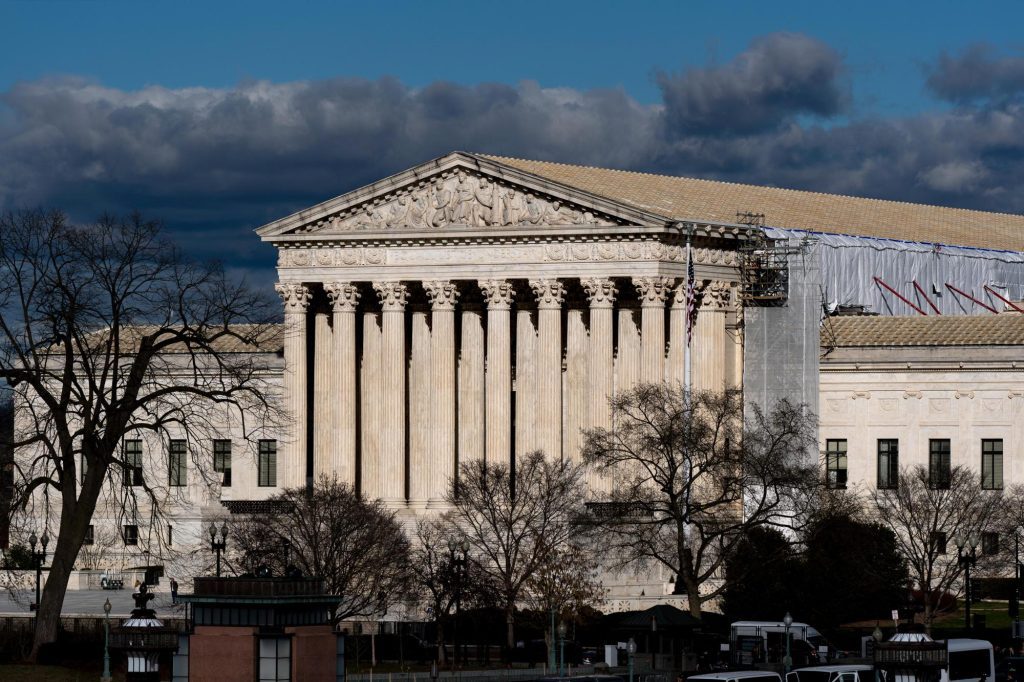By LINDSAY WHITEHURST (Associated Press)
In Washington, the Supreme Court justices queried on Wednesday whether state prohibitions on abortions during medical emergencies clash with federal healthcare law following the far-reaching decision overturning Roe v. Wade.
This case is the first time the Supreme Court has addressed a state prohibition since the nationwide abortion right was overturned. It originates from Idaho, one of 14 states that currently prohibit abortion at all pregnancy stages with limited exceptions.
The liberal minority of the high court raised pointed inquiries about whether Idaho's law endangers women's health.
Justice Elena Kagan commented, "In these rare cases, there are many where the woman's life is not in danger, but she will lose her reproductive organs. She will lose the ability to have children in the future unless an abortion is performed."
Despite the liberal justices being in the minority, two conservative justices would also need to support them, and it was not immediately clear if any members of the majority were persuaded.
The Biden administration contends that even in states where abortion is prohibited, federal healthcare law mandates that hospitals must be permitted to terminate pregnancies in rare emergencies where a patient's life or health is at significant risk.
Idaho argues that its prohibition includes exceptions for life-saving abortions but allowing it in additional medical emergencies would transform hospitals into "abortion enclaves." The state claims that the Biden administration is misusing a healthcare law intended to ensure patients are not turned away based on their ability to pay.
The Supreme Court has allowed the Idaho law to go into effect, even during emergencies, as the case played out.
Before the start of Wednesday's arguments, competing protests were forming outside the court. Abortion rights supporters displayed signs saying, "Abortion saves lives," while opponents displayed a sign stating, "Emergency rooms are not abortion clinics."
Doctors have stated that Idaho's abortion prohibition has already impacted emergency care. More women whose conditions are typically treated with abortions must now be flown out of state for care, since doctors must wait until they are close to death to provide abortions within the bounds of state law.
At the same time, federal documents obtained by The Associated Press indicate that pregnant women have been turned away from U.S. emergency rooms after the Supreme Court overturned Roe v. Wade. spiked The Supreme Court heard another abortion case this term seeking to restrict access toabortion medication
. It remains pending, although the justices overall seemed doubtful of the proposal.
Originally, the Justice Department brought the case against Idaho, arguing that the state's abortion law contradicts the 1986 Emergency Medical Treatment and Active Labor Act. known as EMTALA. It mandates that hospitals that accept Medicare must give emergency care to any patient regardless of their ability to pay. Almost all hospitals accept Medicare.
A federal judge initially agreed with the administration and decided that abortions were legal in medical emergencies. After the state appealed, the Supreme Court allowed the law to go fully into effect in January. The Supreme Court is expected to make a decision by the end of June.Supreme Court justices are asking whether state bans on abortions during medical emergencies clash with federal healthcare law after the far-reaching ruling overturning Roe v. Wade. The case being heard Wednesday will determine when doctors can provide abortions during medical emergencies in states with bans enacted after the Roe v. Wade ruling. The case comes from Idaho, which is among 14 states that ban abortion at all stages of pregnancy with limited exceptions. The Biden administration argues federal healthcare law says hospitals must be allowed to terminate pregnancies in rare emergencies when a patient’s life or health is at serious risk. Idaho argues its ban has exceptions for life-saving abortions.
A federal judge initially sided with the administration and ruled that abortions were legal in medical emergencies. After the state appealed, the Supreme Court allowed the law to go fully into effect in January.
The Supreme Court is expected to rule by the end of June.









